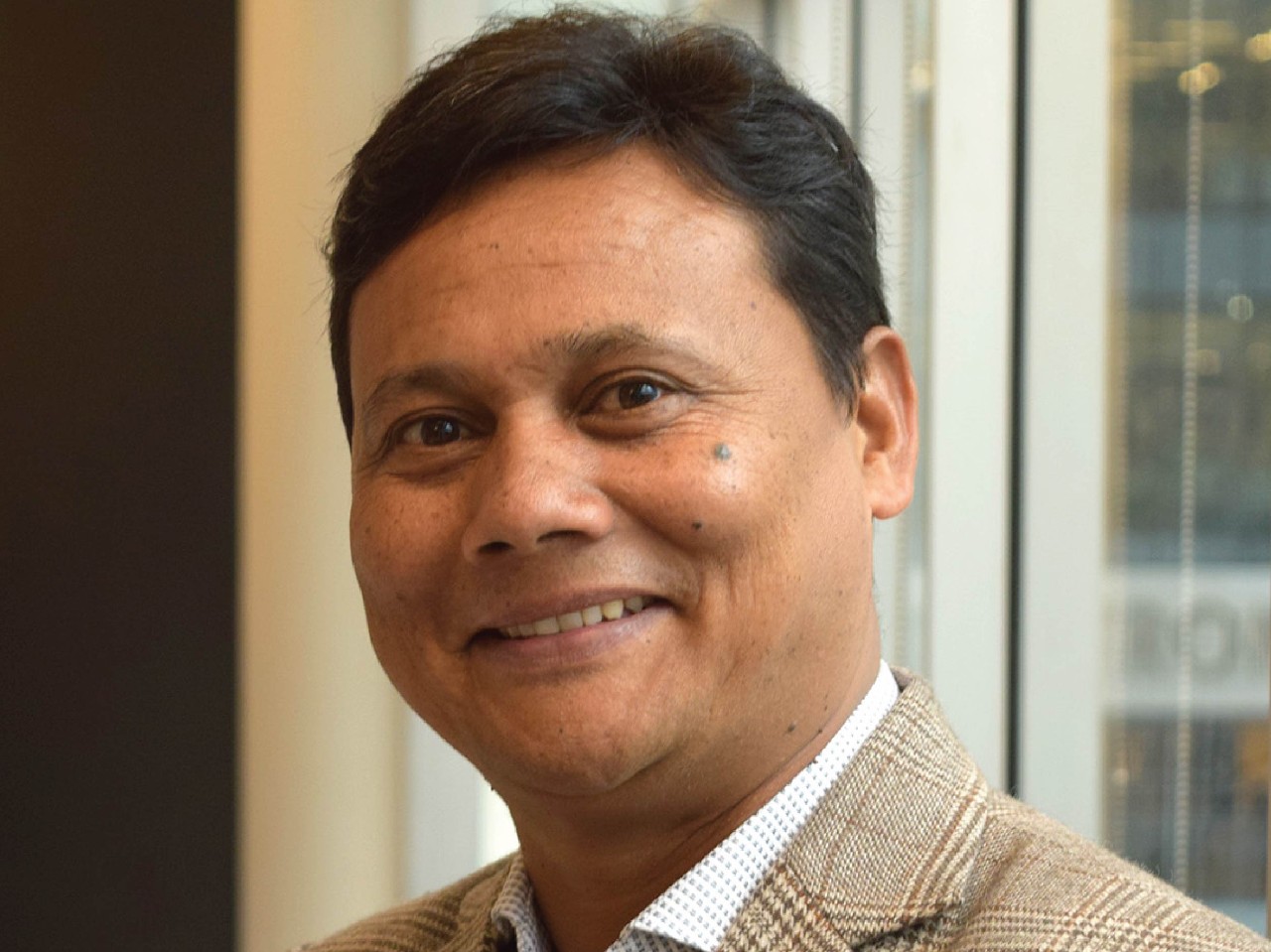
Hari KC
Hari is a migration scholar with research interests in the politics of migration, pertaining to labour migration along South Asia-Middle East corridors, migration policy and governance, and gender and migration. In his doctoral research, he explored the issues of Nepali women migrant domestic workers in the Arabian Gulf countries. This research was based on six months of multi-sited ethnographic fieldwork conducted in Nepal, Qatar, Kuwait, and the United Arab Emirates with funding support of the IDRC Doctoral Research Award.
He has collaborated on several research projects, including the Gender + Migration Hub (external link) which seeks to enhance the capacity of governments, civil society and other stakeholders in designing and implementing gender-responsive migration policies and programs.
Hari is associated with the International Migration Research Centre at the Balsillie School of International Affairs, Wilfrid Laurier University, where he taught a range of undergraduate and graduate courses on migration, citizenship, and global justice. Before joining CERC Migration, Hari was a Postdoctoral Fellow at Wilfrid Laurier University where he focused on the nexus of labour migration and food in/security from a gender perspective. In the past, he also taught at Tribhuvan University in Nepal and worked for the BBC Media Action, Embassy of India, and the Carter Centre. Hari has a PhD in Global Governance from the Balsillie School of International Affairs, Wilfrid Laurier University, and master’s degrees in English and Peace and Conflict Studies from the University of Waterloo.
Recent publications
With Nicola Piper. (Forthcoming). “Rethinking the Migrant Rights Agenda in Global Migration Governance: a Decolonizing Approach.” Eds, Raul Delgado Wise, Ronaldo Munck, Carl-Ulrik Schierup and Branka Likic-Brboric. Edward Elgar Handbook on Migration and Development. Edward Elgar Publishing: Cheltenham, United Kingdom.
With Hennebry, J. (2024). One step forward, two steps back: pandemic policy responses and the gendered implications for women and LGBTQI+ migrants. In Research Handbook on Migration, Gender, and COVID-19. Cheltenham, UK: Edward Elgar Publishing.
With Karki, K. K., Giwa, S., Mullings, D. V., & Raible, C. D. (2023). Making live and letting die: Nepali migrant workers returning from India encounter the state amid the COVID-19 pandemic. (external link) International Journal of Migration and Border Studies, 7(3), 272-295.
With Hennebry, J. L., Piper, N., & Williams, K. (2022). Bilateral labor agreements as migration governance tools: An analysis from a gender lens. (external link) Theoretical Inquiries in Law, 23(2), 184-204.
With Margaret Walton-Roberts & T. Ogundele. (2022). “COVID-19 implications for migrants working in the health care sector.” The COVID-19 Impacts on Migration and Migrants from a Gender Perspective. International Organization for Migration (IOM).
With Hennebry, J. (2021). On the Gendered Structures and Outcomes of Interstate Bilateral Labour Agreements as Migration Governance Instruments. (external link) The Palgrave Handbook of Gender and Migration, 287-301.
With Hennebry, J., & Williams, K. (2021). Gender and Migration Data: A Guide for Evidence-based, Gender-responsive Migration Governance. (external link) International Organization for Migration (IOM). Geneva.
With Jenna Hennebry. (2020). Covid-19 and the transformation of migration and mobility globally – Quarantined! Xenophobia and migrant workers during the COVID-19 pandemic. International Organization for Migration (IOM), IOM Online Bookstore, available at https://publications.iom.int/books/covid-19-and-transformation-migration-and-mobility-globally-quarantined-xenophobia-and-migrant (external link)
With Karki, K. K. (2020). Nepal-India relations: Beyond realist and liberal theoretical prisms. (external link) Journal of International Affairs, 3(1), 84-102.
KC, Hari. (2019). "The New Geographies of Globalization: An Analysis of Women’s Labour Migration from Nepal to the Gulf Cooperation Council (GCC) Countries." Eds, Preet Aulakh and Philip Kelly. Mobilities of Labour and Capital in Asia. Cambridge University Press: London.
(2019). Power and Sandwiched Sovereignty: Nepali Migrant Workers in the Gulf Countries. In Exclusion and Inclusion in International Migration: Power, Resistance and Identity (external link) . Transnational Press London, (pp. 97-115).
With Hennebry, J. L. (2019). Gender, labour migration governance, and the SDGs: Lessons from the case of Nepal. In Achieving the Sustainable Development Goals (external link) . Routledge, (pp. 71-84).
With Hennebry, J., & Piper, N. (2019). Not without them: realising the sustainable development goals for women migrant workers. (external link) Journal of Ethnic and Migration Studies, 45(14), 2621-2637.
(2016). Disability discourse in South Asia and global disability governance. (external link) Canadian Journal of Disability Studies, 5(4), 25-62.
Opinion Pieces
“Global Compact on Migration: Erosion of sovereignty, panacea, or mere futile endeavor?” Setopati, Tuesday, December 18, 2018. Available at http://setopati.net/views/135884 (external link) .
(2018). “An encounter with the State (at Singha Durbar).” (external link) The Annapurna Express,